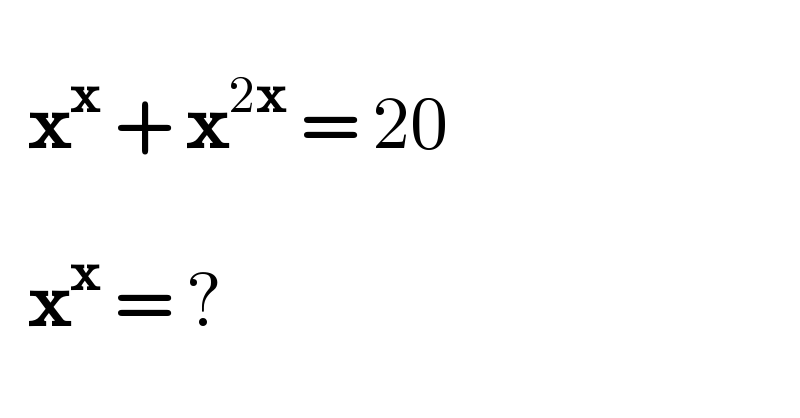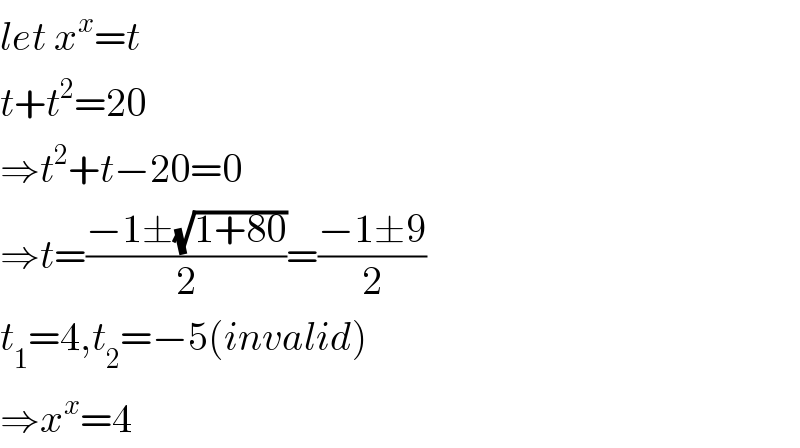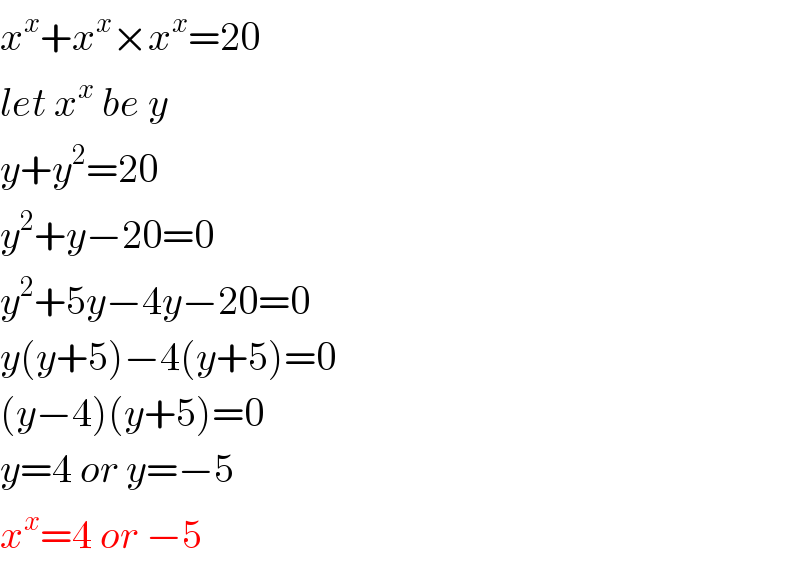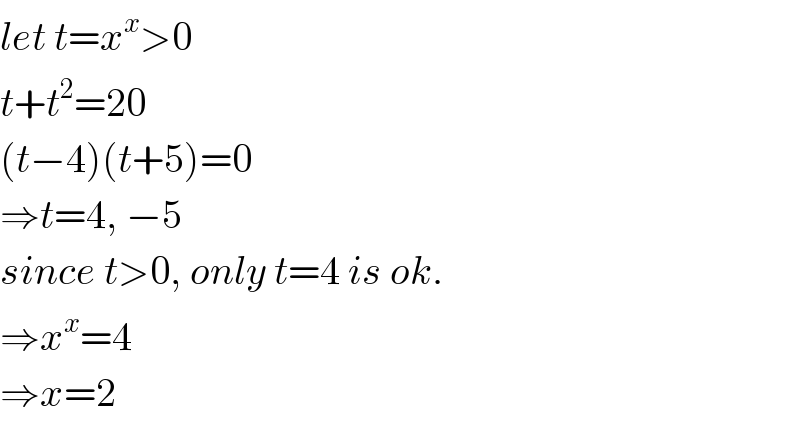
Question and Answers Forum
Question Number 66890 by hmamarques1994@gmail.com last updated on 20/Aug/19

Answered by Kunal12588 last updated on 21/Aug/19

Answered by John Kaloki Musau last updated on 20/Aug/19

Answered by mr W last updated on 20/Aug/19

Commented by John Kaloki Musau last updated on 21/Aug/19

Commented by mr W last updated on 21/Aug/19

